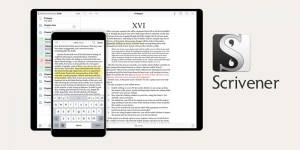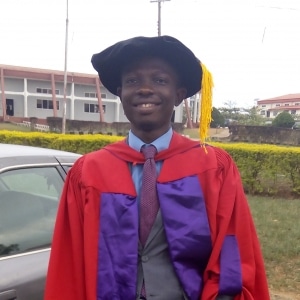Virtually all PhD students will at some point be involved in the teaching of undergraduate students, either through a one-off lecture or in a formalised role as a Graduate Teaching Assistant (TA). Working as a TA can be a fun change of pace to complement your PhD research; it’s also a paid position in most institutions.
Here are 7 tips for new graduate teaching assistants to help make the process as smooth as possible for both you and your students.
1. Prepare for Lectures and Tutorials
Some first-time teaching assistants mistakenly assume they can “wing” their teaching responsibilities because they believe the responsibilities are low level. Don’t make this mistake!
Even if you already feel prepared, always spend the evening before a lecture or tutorial going through the material, and recap it 15 minutes before your session. In doing this, you’ll find it much easier to explain the content, and you’ll be able to provide more detailed answers. If you’re going to be supporting or leading tutorials, try to familiarise yourself with the questions beforehand.
You may often be tempted to brush tutorial preparation aside, especially when you have your own research to do, but it will be clear how under-prepared you are if you’re continually stumbling over yourself and needing to be corrected by the very students you’re trying to help!
2. Preparation for Lab Sessions
Before each lab session, read through the experimental procedure several times and if the steps seem unclear, study further into them to understand their purposes. This is especially necessary for technical demonstrations such as those in physics, chemistry and engineering, where there is usually a long and complicated list of steps to follow. Remember, if a step is unclear to you, it will undoubtedly be unclear to an undergraduate student. Conducting background reading into the procedure will help you prepare for some of the questions that undergraduate students will likely throw your way.
Although not knowing the answer to a question is perfectly fine, not knowing the answer to several questions can reflect poorly on you, especially when they concern the basic principles of the experiment. This won’t earn you much respect from your students, nor will it look good to any staff or lab member within earshot of your group.
3. Set the Ground Rules
One of the most notable challenges a teaching assistant faces is obtaining the same respect from undergraduate students that they have for their professors.
While an undergraduate class will be nothing like an unruly high school class, there will still be potential for conflict that can be harmful to the learning environment, most commonly with punctuation. For example, students may think they can get away with being a few minutes late when they know a teaching assistant will be leading the class. As a TA, it’s your responsibility to ensure a high standard of learning within your classes, and you’re unlikely to maintain this if you have to keep adjusting for late students. This doesn’t mean you should bar late students from entering your class, but making it clear that those who arrive late must catch up in their own time.
You may feel a little uncomfortable about setting rules, especially when it’s your first time teaching, but it will pay off in the long-run when students know what’s expected from them.
Finding a PhD has never been this easy – search for a PhD by keyword, location or academic area of interest.
4. Support, Not Smother
As someone who has sat the course before, you will have more knowledge and experience than the undergraduate students you’re supporting. Remember this the next time you’re hosting a tutorial or laboratory session, as it’s tempting to want to jump in and correct someone the moment you suspect they’re doing something wrong.
Students learn through making mistakes and identifying what they did wrong – constantly correcting them before they have had a chance to realise their mistake will rob them of their learning experience. It may seem counterintuitive, but taking a more passive role during tutorials and lab sessions encourages a better learning environment. This doesn’t mean you shouldn’t help at all (please don’t become one of those TAs…), but when you do, it’s only when the student truly needs it, and it’s in a way that allows the student to reach the right answer for themselves.
5. Your Students Aren’t the Only One’s Learning
If you aspire to go into academic teaching, it’s natural for you to feel you have to be the best TA, to be able to answer all questions thrown at you and have all your students fly through their exams. In reality, this will never be the case – even for distinguished professors who have been teaching for over 20 years!
Accept that it’s ok not to always have the answers or have the occasional lesson not go as planned. The most important thing is that you’re willing to learn and improve. If you can’t answer a question, inform the student you’re unsure and will reply to them after class once you’ve had some time to look into it. The same goes for laboratory sessions. If you feel that a certain part of your session didn’t go well, take the time to analyse what went wrong and how you can revise your approach going forward.
6. Manage Your Time
As a TA, you need to balance your responsibilities as an employee of the university and as a research student working towards your PhD. The exact number of hours you’ll be expected to work will depend on your specific contract, but monitor your average workload to ensure that it doesn’t frequently exceed what you agreed to. Tell your supervisor if you think you’re constantly being over utilised and if it’s affecting your research commitments. They may be able to help by lightening your teaching load or advising you on how you can perform some of your teaching duties more efficiently.
7. Build a Personal Connection
Building a connection with the students you teach is a simple but effective way to create a more comfortable and engaging learning environment.
If you’re going to be teaching the same course of students often, and assuming there isn’t an entire lecture hall full of them, you could try learning their first names if you really want to connect with them.
You can also build rapport by sharing advice with them, after all, you’ve been a student for several years so know all too well the challenges of having to balance university life with a personal social life. Not only will they appreciate your advice, but they’ll also value you more after being reminded that you’ve already walked their path with a high level of success.
Conclusion
Becoming a graduate teaching assistant can be a great way to supplement your income as a PhD student; it can also be an unforgettable experience that opens up new opportunities if all goes well. The above tips should help ensure your TA journey is a smooth one, regardless of whether you’ve already taught for a year or if it’s your first time.











